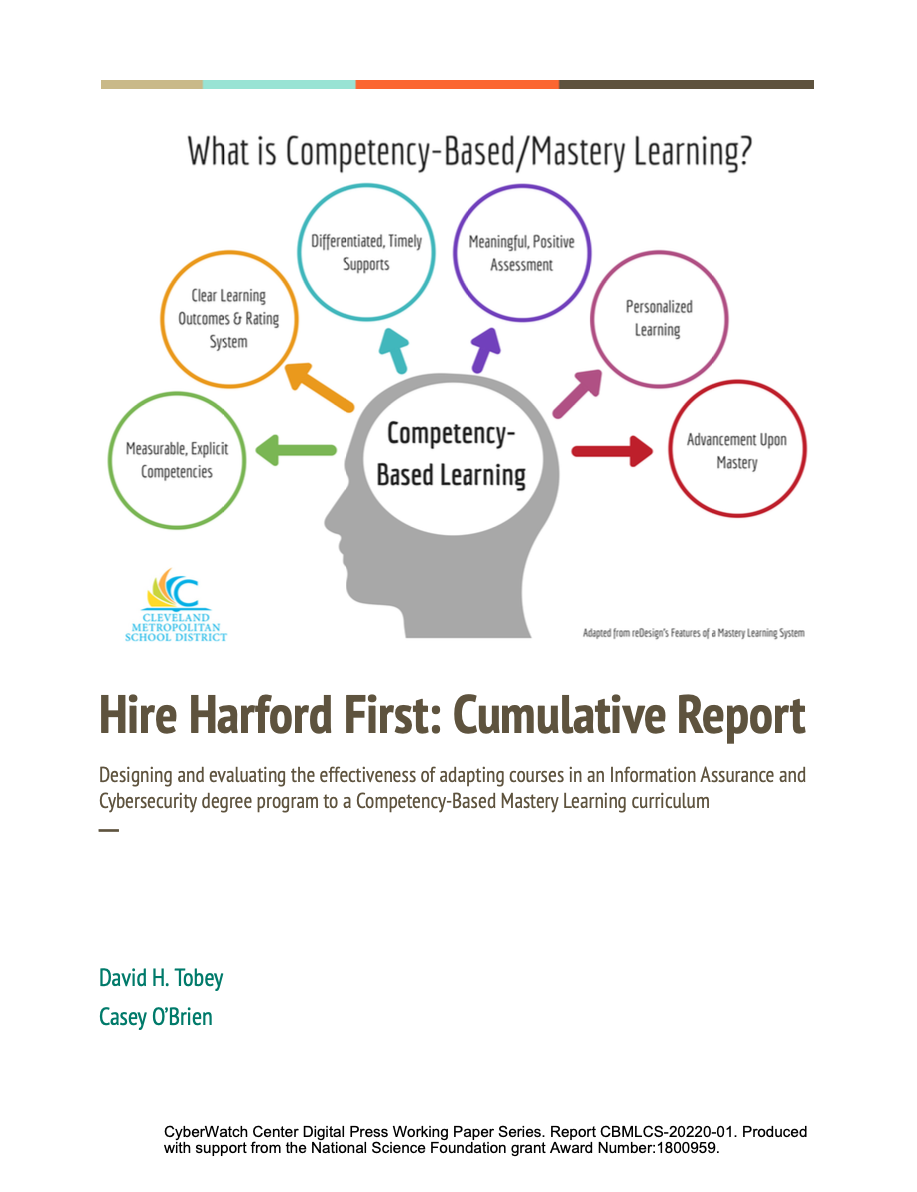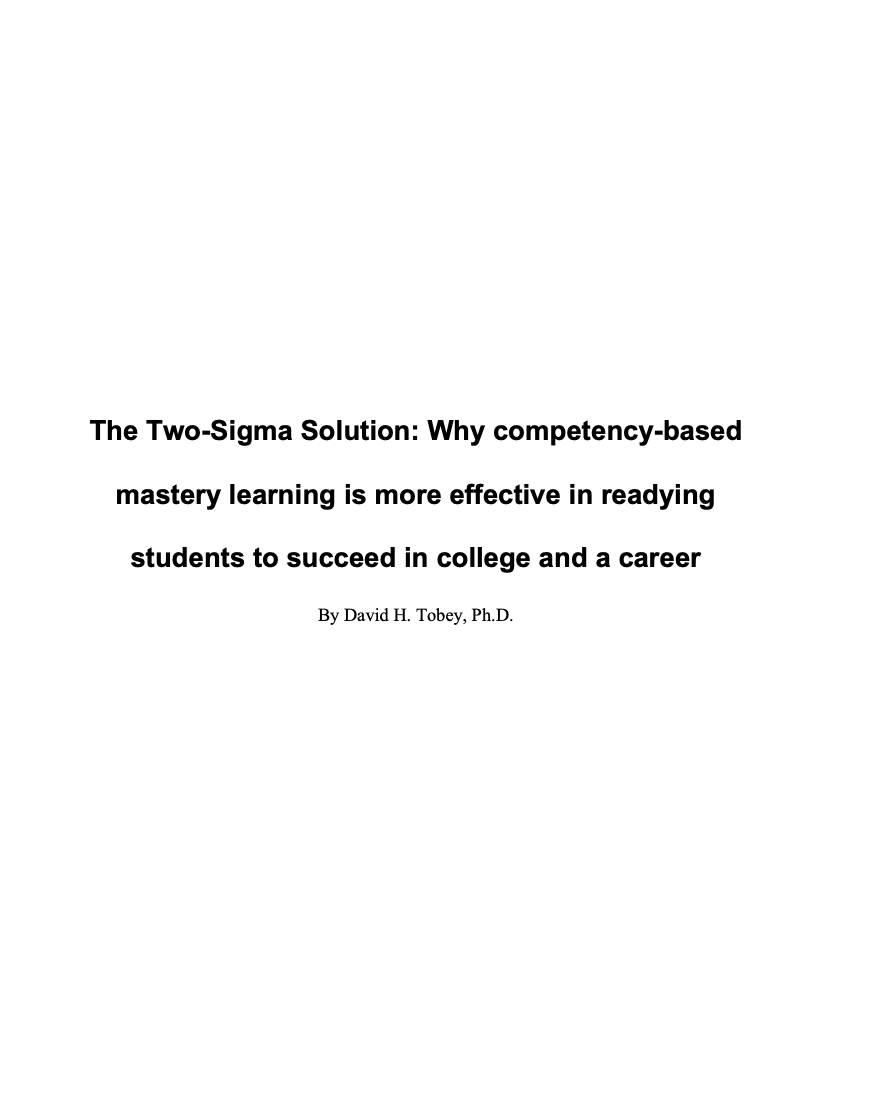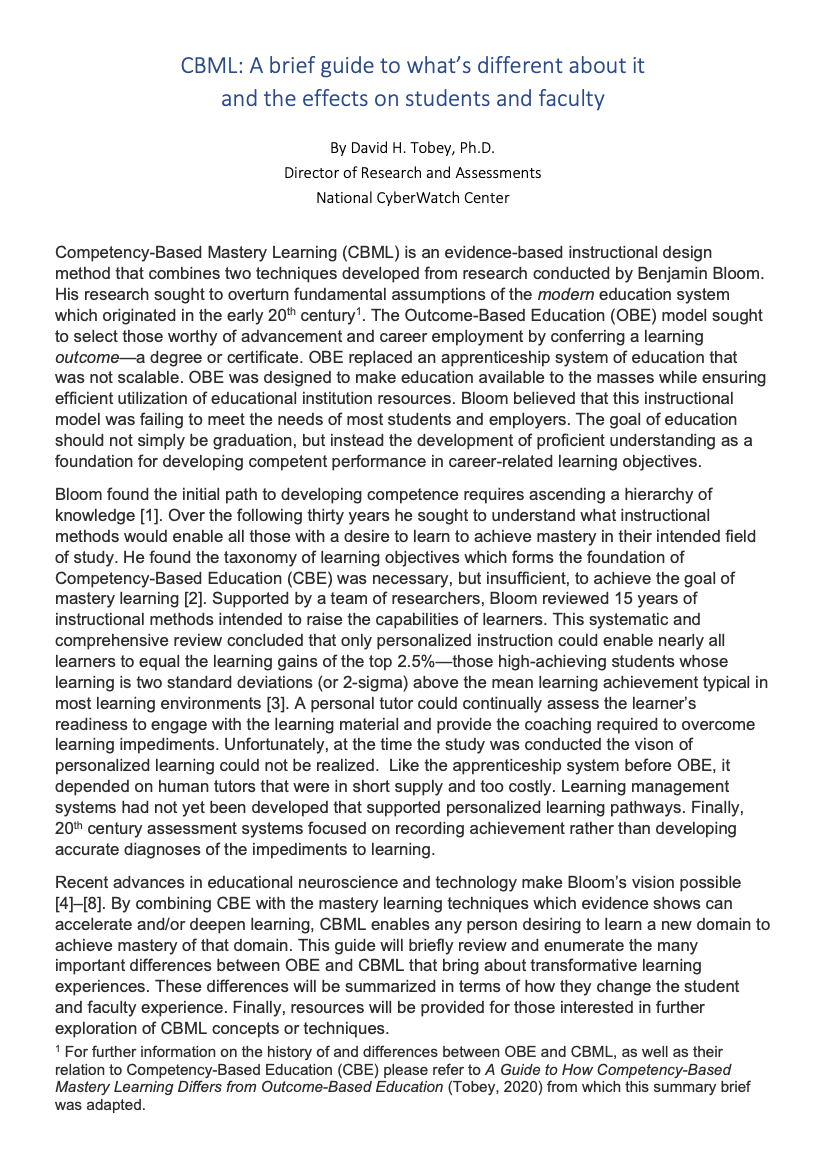
Working Paper: Designing and Evaluating the Effectiveness of Competency-Based Mastery Learning (CBML) Curriculum
This National Science Foundation (NSF) Advanced Technological Education (ATE) project, entitled Hire Harford First (HHF), sought to “develop curriculum and educational materials that are based on ATE-funded CyberWatch Center’s practices, and to disseminate curricula, course materials, and best practices to the ATE and broader educational community, including insights as to whether competency-based learning produces graduates who are better capable of making immediate positive contributions upon entering the workplace.” HHF was a three-year study in the design, development, and implementation of innovative curriculum designed to foster Competency-Based Mastery Learning (CBML). The results demonstrate the expected broader impact of CBML instructional design. Results showed “the strong potential to…produce more graduates, since it will reduce attrition, encourage persistence, and attract more participants based on its reputation of success.”
In summary, fully-implemented CBML instructional design and associated instructional methods that “flip the classroom” whereby faculty become success coaches rather than instructors for students produced proficiency improvement, on average, of 1.94 sigma. This dramatic improvement nearly exactly matches the prediction of Benjamin Bloom (1984) that systems designed to assess and provide personalized instruction to address prerequisite capability deficits would enable nearly all students (97.5%) to equal the mastery achievement by the best students (top 2.5%). As predicted, these proficiency gains increased course completion rates. An unprecedented number of students, 86.4% in the introduction to information security course and 96.6% in networking fundamentals course, completed the course sections that fully implemented the CBML instructional system.


